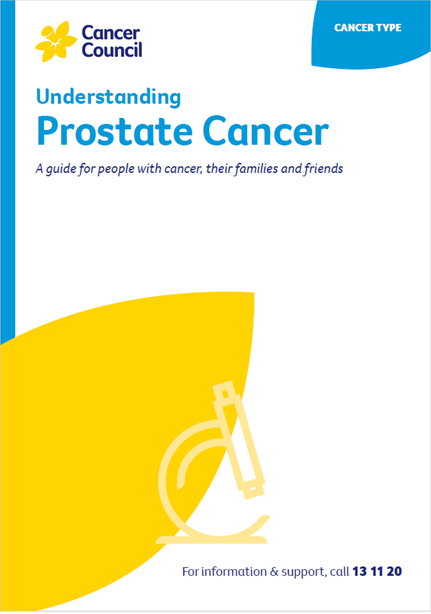- Home
- Prostate cancer
- Management and treatment
- Active surveillance
Active surveillance for prostate cancer
This is close monitoring of low-risk prostate cancer that isn’t causing symptoms. The aim is to avoid treatment that’s not yet needed, while watching for any changes that mean treatment should start.
Active surveillance is usually suggested for prostate cancers with a PSA level under 10 ng/mL, stage T1–2, and Gleason 6 or less (Grade Group 1). It may also be suggested for certain cancers with a PSA level between 10 and 20, and some Grade Group 2 cancers.
About 80% of Australians with low-risk prostate cancer choose active surveillance. It involves PSA tests every 3–6 months, as well as a digital rectal examination and mpMRI scans and biopsies as advised by your urologist. If results show the cancer is growing faster or more aggressively, your specialist may suggest starting active treatment.
Choosing active surveillance or watchful waiting avoids treatment side effects, but you may feel anxious about not having active treatment. Talk to your doctors about ways to manage any worries, or call Cancer Council 13 11 20.
→ READ MORE: Watchful waiting for prostate cancer
Podcast: Making Treatment Decisions
Listen to more episodes from our podcast for people affected by cancer
More resources
Prof Declan Murphy, Consultant Urologist, Director – Genitourinary Oncology, Peter MacCallum Cancer Centre and The University of Melbourne, VIC; Alan Barlee, Consumer; Dr Patrick Bowden, Radiation Oncologist, Epworth Hospital, Richmond, VIC; Bob Carnaby, Consumer; Dr Megan Crumbaker, Medical Oncologist, St Vincent’s Hospital Sydney, NSW; Henry McGregor, Health Physiotherapist, Adelaide Men’s Health Physio, SA; Jessica Medd, Senior Clinical Psychologist, Department of Urology, Concord Repatriation General Hospital and Headway Health, NSW; Dr Gary Morrison, Shine a Light (LGBTQIA+ Cancer Support Group); Caitriona Nienaber, 13 11 20 Consultant, Cancer Council WA; Graham Rees, Consumer; Kerry Santoro, Prostate Cancer Specialist Nurse Consultant, Southern Adelaide Local Health Network, SA; Prof Phillip Stricker, Chairman, Department of Urology, St Vincent’s Private Hospital, NSW; Dr Sylvia van Dyk, Brachytherapy Lead, Peter MacCallum Cancer Centre, VIC.
View the Cancer Council NSW editorial policy.
View all publications or call 13 11 20 for free printed copies.

